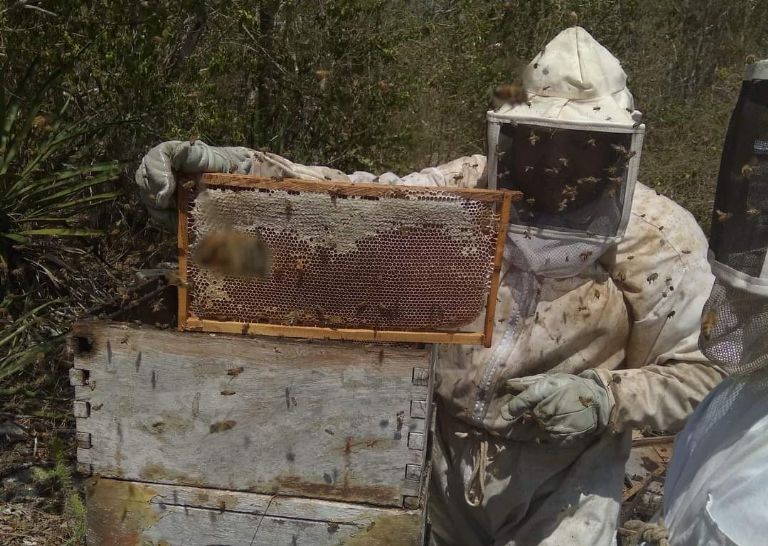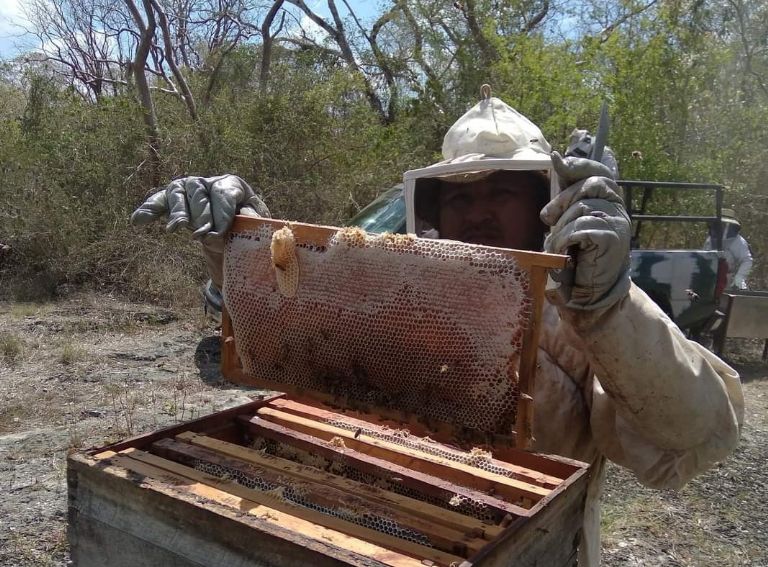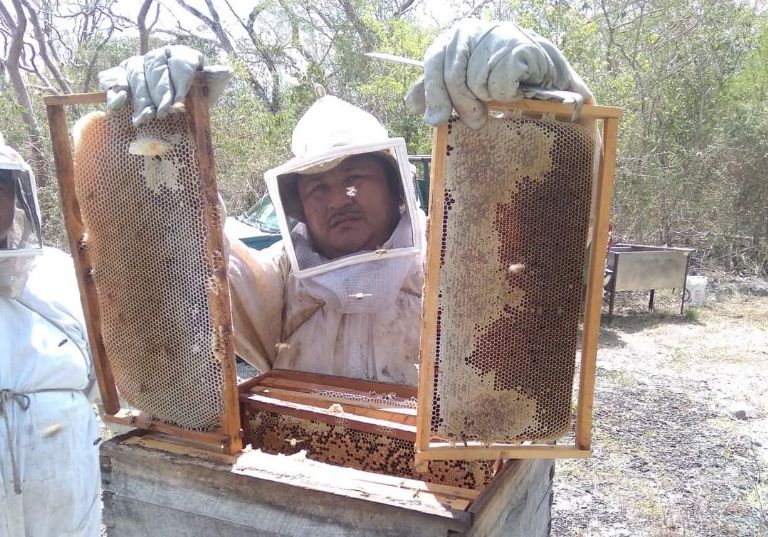Producers from the Eastern Zone of Yucatán are preparing a proposal to develop a Beekeeping Law for the protection of bees and beekeepers, in order to present it to the State Congress, as a result of the problem that exists in the State due to the indiscriminate use of toxic agrochemicals that cause the death of bees and other pollinators.
The producers affected by this problem since 2018 seek that, through this Beekeeping Law, bees are subjects of law and that beekeepers are considered as their guardians; In addition, the law will have as part of its objectives to promote, conserve, protect, organize, foster, and disseminate everything related to this activity.
Marco Cupul, from the Mayan Alliance for the bees of the Yucatan Peninsula Kabnalo’on, has actively participated in the creation of this law, given the bitter experiences that he and other beekeepers have lived through. With the support of the Ecosur-Chiapas Bees and Territory Project, this law is intended to be presented to the local Congress so that the rule applies throughout the State of Yucatán since the mortality of bees and other pollinators are hitting record figures.
He pointed out that, in a meeting held in recent days, the foundations were laid so that, together with other beekeepers, this Law for the Protection of Bees and other pollinators could be sent to Congress. He said that it is intended to include beekeepers from al over the Yucatan.

“Currently, evidence has been collected on the platform of the National Registry of Death of Bees by Pesticides of the National Committee for the Promotion of Development and Beekeeping Health, so that there is consistency and a firm basis for this proposal”, said the beekeeping leader, who clarified that they hope to present this initiative as soon as the results of the evidence that will be analyzed in laboratories in Monterrey are available.
The representative of the Mayan Alliance for the Bees of the Yucatan Peninsula Kabnalo’on recalled that in 2018 in the Emal area they had a million-dollar loss when they were affected by aerial fumigation, due to the lack of laws that regulate these practices and that the negative impact on honey insects and other pollinators must be cataloged as a crime. That is why beekeepers have organized to seek legal avenues to protect this important sector.
For seven years, Marco Cupul knocked on doors until he met Irma Gómez, from Proyecto Abejas and Territorio Ecosur-Chiapas, and together they will work on the development of a proposal for a Beekeeping Law so that the harm to bees through the use of agrochemicals is classified as a crime.
Cupul said that in Quintana Roo there is a law that protects honeyeaters and other pollinators, but in Yucatán there is laws that regulate fumigation activity.

The problems experienced in the East of the State have set the tone for legal actions to be sought against the use of toxic substances in Yucatan and alternative ways are sought to avoid the use of agrochemicals, so that farmers and ranchers look for other ways to control pests and weeds with more sustainable practices and products that are “friendlier” to nature.
Fidencio, one of the many beekeepers who was affected because his apiaries were located near the cornfields that were fumigated, said that this law is intended to also allow the promotion, conservation, protection, organization, encouragement, and dissemination of everything related to this activity.
Irma Gómez, from Proyecto Abejas and Territorio Ecosur-Chiapas, revealed that in large crops such as chili, watermelon, cucumber, lemon, papaya, tomato, sorghum, corn and soybeans, the use of herbicides, pesticides and fungicides affect beekeeping significantly, because the use of chemicals kill thousands of bees each season, which is why he urged the members of Congress to approve this law and put an end to this terrible practice.

This initiative by beekeepers in the Eastern part of the State arose because this year the mortality of bees was recorded in at least six communities due to the use of toxic products and nearly one thousand hives were lost.
They pointed out that the company Enerall, property of the Yucatecan businessman Javier Xacur, and other farmers of the region are affecting beekeeping significantly by fumigating their crops and pastures with small planes, drones and helicopters. This situation prevails in the communities of Chenkekén, Santa Clara, Dzibalkú, Colonia Yucatán, Cabichén, San Luis Tzuctuk and San Pedro.
TYT Newsroom



